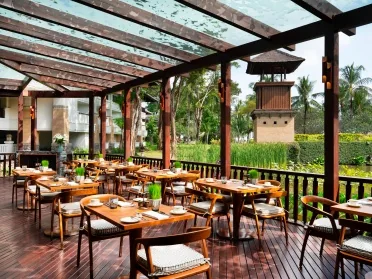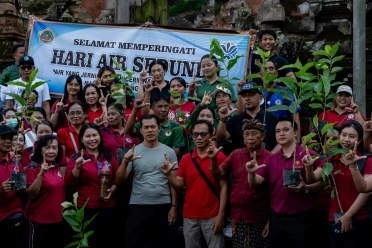In the vibrant Balinese culture, Tumpek Wariga is a momentous holistic celebration, weaving together spirituality, environmental consciousness, and cultural heritage. This biannual event, steeped in rich traditions, holds special significance as it not only pays homage to the plant kingdom but also serves as a precursor to the much-anticipated Galungan festival, a celebration that signifies the harmonious relationship between humans and the natural world.
The Eco-Conscious Essence of Tumpek Wariga: A Balinese Celebration of Nature
Known by Many Names, Dedicated For Plants Kingdom
Tumpek Wariga, known by various names such as Tumpek Pengarah, Tumpek Pengatag, Tumpek Uduh, or Tumpek Bubuh, unfolded in fields and gardens across Bali, where the Hindu community presented offerings of canang (traditional Balinese offerings) and bubur (rice flour porridge) to Dewa Sangkara. This divine force is revered as the embodiment of life within the intricate realm of plants. Rituals unfold in fields and gardens owned by locals, where offerings of canang (traditional Balinese offerings) and bubur (rice flour porridge) are presented to Dewa Sangkara, the divine force within plant life.
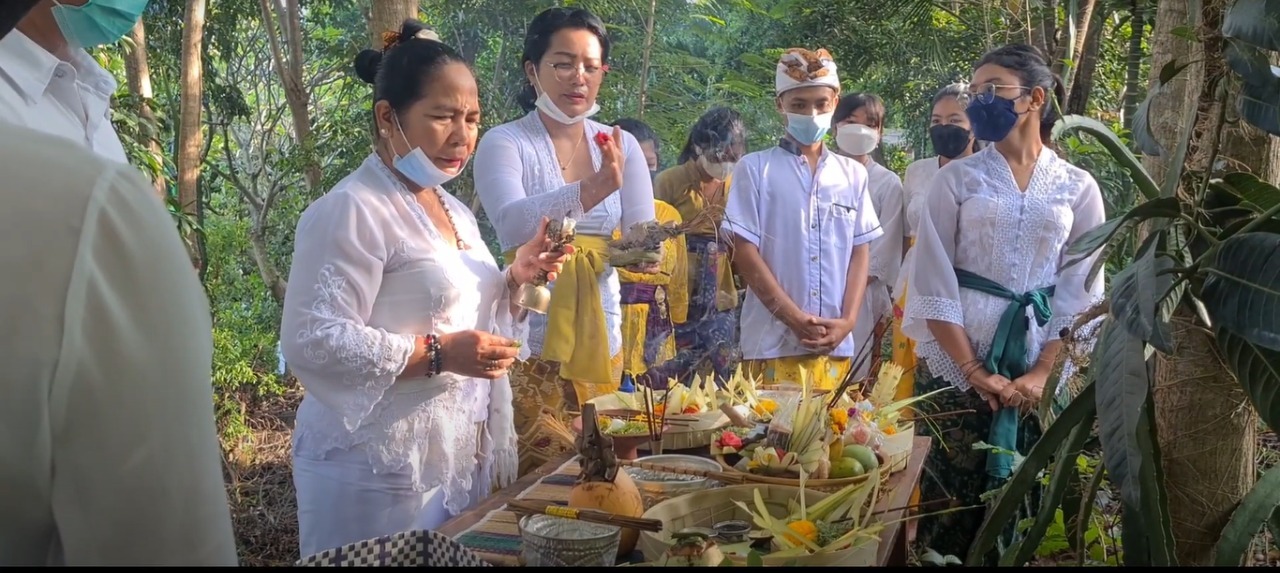
The Sacred Chant
As part of the ceremony, the bubur is meticulously affixed to trees after a slight incision, accompanied by a special prayer: "Kaki kaki, Nini nini, Sarwa tumuwuh. Niki tiyang ngaturin bubuh mangda ledang tumbuh subur, malih selae lemeng Galungan. Mabuah apang nged, nged, nged..." Translated, it conveys a plea for abundant growth and fruitful harvests during Galungan, a sentiment often punctuated with the rhythmic tapping of the tree's trunk three times, symbolizing the desired abundance. This practice is accompanied by a heartfelt prayer that seeks not only abundant growth but also fruitful harvests during the upcoming Galungan festival.

The Balinese 'Earth Day' and Correlation to 'Tri Hita Karana'
This celebration goes beyond marking the imminent Galungan festival; it embodies a spirit of environmental preservation, often likened to the Hindu Earth Day in Bali. Tumpek Wariga imposes restrictions on harvesting or cutting plants on this day, contributing to the broader ethos of environmental conservation. Tumpek Wariga is more than a momentary celebration; it serves as a day of deep reverence for nature, embodying the principles of Tri Hita Karana. This ancient philosophy emphasizes the harmonious relationship between humans, the divine, and the environment. The Balinese Hindu community, in observing Tumpek Wariga, renews its commitment to fostering this interconnected balance.
Not A Mere 'Pre-Galungan' Ritual, An Inspiration of Environmental Consciousness
Beyond its role in marking the imminent Galungan festival, Tumpek Wariga stands as a beacon of environmental consciousness in Bali. The celebration imposes restrictions on the harvesting or cutting of plants on this sacred day, contributing to the broader ethos of environmental conservation that has become synonymous with Balinese Hinduism. The prayers and chants uttered during Tumpek Wariga express profound gratitude to the divine for the fertility of plants and the flourishing yields that sustain both the Balinese people and their sacred traditions. This spiritual connection with the environment underscores the Balinese Hindu community's commitment to preserving nature.
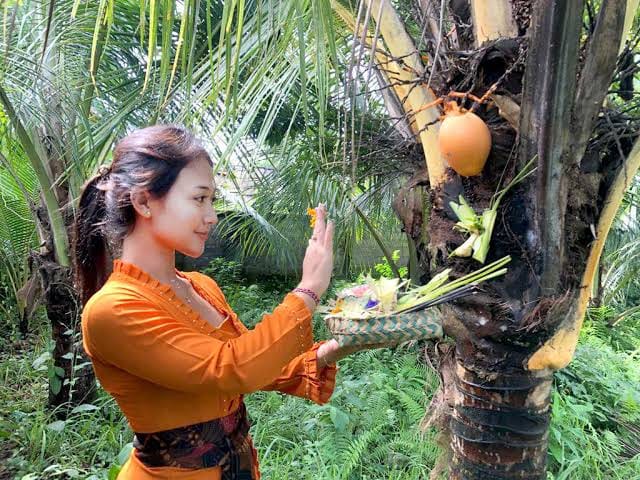
Conservation Essence; Permission and Commitment
In essence, Tumpek Wariga symbolizes a holistic approach to environmental conservation. Ancestral wisdom guides the community to plant five trees for every one felled. The accompanying rituals seek both permission and a commitment to replanting, ensuring the sustainability of the ecosystem and contributing to the overall well-being of the island. In a world where global trends often overlook local wisdom, some Indonesian communities still venerate specific forests. These are sanctuaries accessible only during ritualistic events, a practice once dismissed as superstitious but now recognized as a testament to the deep-rooted local wisdom in preserving the environment.
The Practice of Self-Sufficiency
Tumpek Wariga not only encourages the planting of fruit trees but also promotes self-sufficiency. The Balinese are urged to cultivate their own fruits, reducing reliance on imports. This echoes a profound message—that every open space should be adorned with fruit-bearing trees, promoting a lifestyle that is not solely consumer-oriented but one that harmonizes with the Earth.
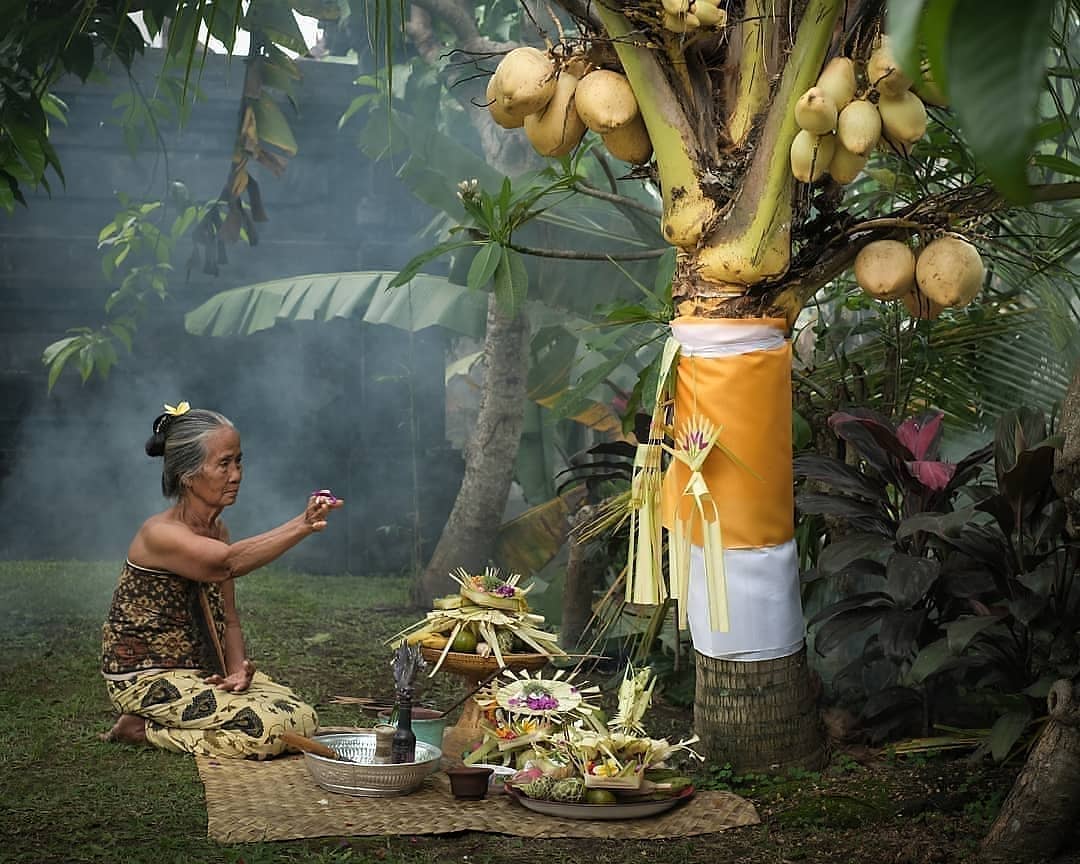
Tumpek Wariga stands as a unique celebration in the Balinese Hindu calendar, transcending time and space to weave together the threads of spirituality, environmental consciousness, and cultural heritage. It serves as a timeless reminder of the intimate relationship between humans and nature, encapsulating the profound wisdom of a community committed to the well-being of the Earth. As the echoes of prayers and chants linger in the Balinese air, Tumpek Wariga continues to weave the tapestry of a harmonious coexistence between the people of Bali and the natural world.




 Billy Bagus
Billy Bagus
 Mar 01, 2024
Mar 01, 2024



